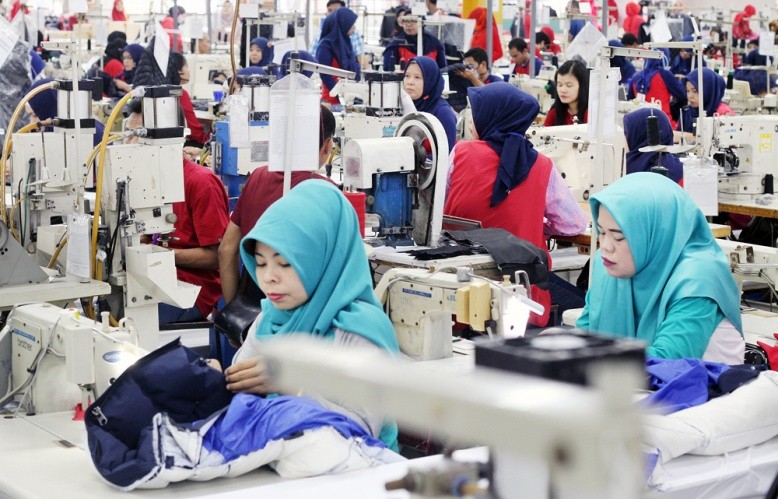Popular Reads
Top Results
Can't find what you're looking for?
View all search resultsPopular Reads
Top Results
Can't find what you're looking for?
View all search resultsGovernment allocates $8b to stimulate economy as businesses, workers suffer from COVID-19 impacts
The government announced on Friday a second and bigger stimulus package worth Rp 22.9 trillion (US$1.5 billion).
Change text size
Gift Premium Articles
to Anyone
T
he government announced on Friday that it would allocate Rp 120 trillion (US$8.1 billion) from the state budget to stimulate the economy by providing tax incentives and subsidies for workers, businesses and families affected by the COVID-19 pandemic.
The government's second stimulus package, worth Rp 22.9 trillion, includes individual and corporate tax breaks as well as the relaxation of loan disbursement and restructuring requirements.
Finance Minister Sri Mulyani Indrawati said manufacturing workers with incomes below Rp 200 million per year would be exempted from paying income taxes for six months. The government has also cut the corporate income tax rate by 30 percent for six months and deferred import tax payments for six months for 19 manufacturing industries. It will also speed up repayments of overpaid tax without initial audits.
The government also unveiled a non-fiscal stimulus package that includes a reduction in the number of goods prohibited for import and the acceleration of export and import processing and licensing, especially for reputable traders.
Read also: Tax breaks, job training to combat virus impacts
In the financial sector, the Financial Services Authority (OJK) announced it would allow banks to issue new “policies to stimulate economic growth, especially for borrowers affected by the COVID-19 outbreak, including MSMEs [micro, small and medium enterprises]”. The policies include the relaxation of credit assessment and restructuring requirements.
“This will not be the last announcement, as the developments have been extremely dynamic. We will assess the situation to mitigate and minimize the impacts. We cannot eradicate the impacts but we can minimize them for corporations and the public,” Finance Minister Sri Mulyani Indrawati told a press briefing in Jakarta.
The announcement came as governments and central banks around the world announce fiscal stimulus and monetary easing policies, following the historic global financial market rout spurred by fears over the COVID-19 pandemic.
The new measures add to the first Rp 10.3 trillion stimulus package announced on Feb. 25 that provided mortgage subsidies for low-income families and fiscal incentives for travel-related industries. The government will also speed up the disbursement of social spending in the first quarter and subsidies for the pre-employment card program this month.
Key elements of the second stimulus package announced on March 13
Fiscal stimulus measures
- Government to exempt manufacturing workers with yearly incomes below Rp 200 million from income tax for six months.
- Import taxes for raw materials waived for six months for 19 manufacturing industries.
- Corporate tax rate cut by 30 percent for six months for 19 manufacturing industries.
- Repayment of overpaid tax to be sped up without initial audits. No limit set for exporters, but Rp 5 billion limit set for non-exporters.
Non-fiscal measures
- Import restrictions to be reduced for goods under the 749 HS code, including in the fisheries and forestry industries. Health certificate and V-legal documents will no longer be required.
- Import restrictions to be simplified for raw materials, including steel and alloy steel as well as several food commodities including sugar. The government will also simplify regulations on animal, medicine and food imports.
- Export-import processes to be sped up for reputable traders.
- National logistics ecosystem development to be improved.
Financial sector
- Relaxation of credit scoring requirements
- Relaxation of loan restructuring requirements
Food
- Issuance of import recommendations to be sped up to ensure sufficient supply and stabilize food prices.










